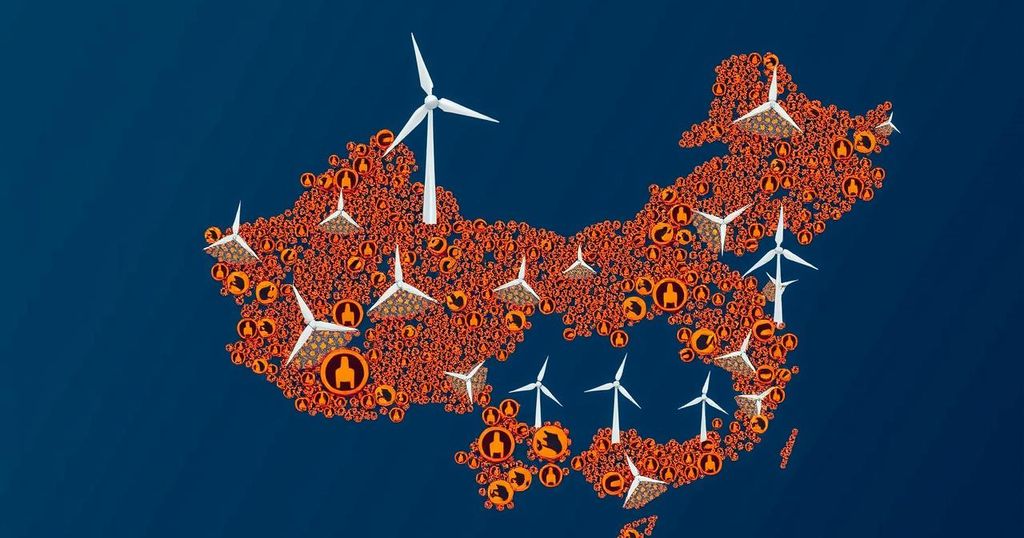Companies
AN, ANIKA HECKWOLF, ASIA, BRAZIL, CHINA, DIALOGUE EARTH, ECONOMIC GROWTH, ENVIRONMENTAL POLICY, ESG, INTERNATIONAL COOPERATION, INTERNATIONAL RENEWABLE ENERGY AGENCY, LIMA, LONDON SCHOOL OF ECONOMICS RENEWABLES, MEXICO, NORTH AMERICA, PARIS AGREEMENT, PERU, RENEWABLE ENERGY, SOUTH AMERICA, UNFCCC
Leila Ramsay
0 Comments
Promoting Gender Equality in China’s Renewable Energy Sector at COP29
COP29 highlighted the need for gender equality in climate action, particularly within China’s male-dominated renewables sector. Despite progress, women’s representation is declining. Experts advocate for business-led initiatives to implement gender data disclosure and support women’s empowerment, recognizing the economic and social benefits of gender balance. As international pressures mount, Chinese firms have the opportunity to lead gender equality initiatives within the renewable energy landscape.
The recent COP29 conference emphasized the critical need for gender equality within the climate action framework, particularly as it relates to the renewable energy sector in China. Despite the increasing focus on gender involvement in climate negotiations, the renewable energy workforce in China remains predominantly male, with women’s participation reportedly declining. Experts believe that businesses can play a pivotal role in addressing these disparities by disclosing gender data and implementing practices that promote women’s empowerment in this crucial sector.
As the world’s leading employer in renewables, where 46% of jobs reside, China is ideally positioned to leverage opportunities presented by its burgeoning renewable sector. Events like COP29, which included a presentation from the NGO China Sustainability Tribune, underline the potential for renewable energy to act as a catalyst for gender equality, especially as this sector undergoes rapid growth. According to data from the International Renewable Energy Agency, women constituted 32% of renewable energy employment globally in 2019—slightly higher than the overall energy sector—but the situation in China shows that while numbers have improved marginally, substantial barriers remain.
The challenges for women in this sector extend beyond mere representation; they also pertain to the quality of roles held and career advancement opportunities. Positions in technical fields are predominantly held by men, while women are often found in lower-paying, less authoritative roles. Experts argue that mere numerical balance is insufficient; addressing the root causes of women’s underrepresentation is essential for fostering true equality.
A crucial step toward enabling gender equality is the enhancement of gender-disaggregated data, which aids in measuring and facilitating progress on gender issues. Reports show that while there is an increasing presence of gender data in Chinese companies, the actual representation of women is shrinking. Noteworthy organizations, including LONGi, are proactively publishing gender-specific statistics, setting an example for corporate transparency and accountability.
Promoting gender equality within the renewable sector is not merely a moral imperative; it is also a potential driver of economic performance. Evidence suggests that companies with gender-balanced leadership experience significantly improved business outcomes. With external pressures, such as international project requirements mandating women’s representation, there are collective incentives for Chinese firms to advance gender equity.
Finally, the expansion of China’s global renewable energy projects provides an opportunity to export gender equality aims overseas, which could contribute positively to the global energy transition narrative. If Chinese firms commit to these principles, they have the potential to elevate the role of women in this sector significantly, marking a progressive step toward a more inclusive energy future.
Gender equality increasingly occupies a central place in discussions surrounding climate action, particularly within the context of international dialogues such as COP29. The Enhanced Lima Work Programme on Gender aims to create gender-balanced climate strategies and has seen growing support from UNFCCC signatories. However, as the renewable energy sector expands rapidly, it remains largely male-dominated, particularly in China, which holds a significant portion of the global renewable workforce. This phenomenon presents both barriers and opportunities for promoting gender equality in an area critical to addressing climate change and transitioning to sustainable energy.
In conclusion, the renewable energy sector in China is at a crossroads where the potential for enhanced gender equality is significant yet faces formidable challenges. While women’s participation in the sector has seen incremental improvements, the systemic barriers to their full involvement and advancement must be addressed head-on. By fostering a culture of transparency via gender-disaggregated data and engaging in active support for women in the workforce, Chinese firms can not only enhance their productivity but also align themselves with the global push for inclusive sustainability goals.
Original Source: www.eco-business.com




Post Comment